Cracked Open: On Daycare Drop-Off, Partnering Through Postpartum, and the Quiet Confidence That Comes from Knowing Your Baby
My baby didn’t cry when I dropped her off at daycare for the first time.
She didn’t even look back.
No hesitation. No dramatic pause at the door. She just walked—confident and certain—toward the tiny chairs and bins of toys like she’d always belonged there.
And me? I didn’t cry either.
I didn’t sit in the car for 15 minutes trying to catch my breath. I didn’t feel gutted or unsure. I felt clear.
We waited until we were all ready.
And we knew she was.
That wasn’t luck. That was intention—the kind that only comes when both parents are watching, listening, and building a relationship with their baby, even if it looks radically different for each of them.
My wife was the one who saw it first. That our daughter was ready. That I was. She held that mirror up gently and clearly, the way she always does. And I trusted her knowing. I’ve watched her do that at work—read a room, a meeting, a situation—and lead with clarity. But doing it at home? With our child? That was a whole new kind of intimacy.
The Working Parent’s Grief (That Doesn’t Always Get Named)
I know the story people expect: the stay-at-home mom who has a hard time letting go, and the working partner who eases back into normal life with a few photos at lunch.
But that’s not our story.
My wife didn’t get to spend every day memorizing our daughter’s routines. She didn’t get the slow mornings or the long contact naps. Instead, she got up every day and worked in a high-pressure, high-stakes job—showing up, performing, solving, delivering.
All while being called the “other mother.”
All while missing the micro-moments that I got to live inside of.
And it wasn’t easy for her. It wasn’t a relief. It was a sacrifice.
Every time she walked out the door, she gave up another day of knowing our daughter in that full-body, minute-to-minute way. And she did it anyway—for us. For our stability. For our future. For me to have the time to fully heal and learn our baby’s language before anyone else did.
So when I say that we waited until our daughter was ready for daycare, I mean we waited. And it cost us something to do that.
The Emotional Load of Preparation
In my childbirth education class, I give each person a blank circle. I ask them to write down everything they do in a day—emails, breakfast, teeth brushing, managing tension, organizing childcare, keeping track of everyone’s social calendar. Then I give their partner the same circle and the same task.
And then I give them a third circle—a shared one, with just a sliver of overlap.
I say: This is what early parenthood looks like.
This is the space you now have to do all the things you used to do separately. So:
What gets dropped?
What gets outsourced?
What do you stop doing altogether?
What do you trust someone else to hold?
For us, that sliver looked like me staying home, and her working. And even though that arrangement worked on paper, emotionally it pulled on both of us in places we didn’t expect.
She was giving her all to us—me and our daughter—with very little coming back. And I was giving my all to the baby, with very little left to offer her. We were in a long-distance relationship, separated by walls, bottles, and deadlines.
But still—we did it.
And now, I get to return home to her.
Not just physically.
But emotionally. Softly. Slowly.
We get to reclaim mornings and laughter and touch.
Our daughter goes to daycare with the full weight of that love behind her. And she didn’t look back—because she didn’t need to. She knew we’d built her a safe launchpad.
If You’re Preparing to Go Back to Work at 12 Weeks
You’re likely already thinking about logistics: pumping, commuting, bottle prep, the return to meetings, expectations.
But don’t forget to think about your partner.
Whether you’re the one staying home or the one heading into high-pressure work: this transition is happening to both of you. And it will change everything.
If you want to prepare in a way that honors both of your experiences, this is what my childbirth class is built around.
Not just birth plans and breathing techniques (though yes, we cover that too), but:
How to protect your relationship in the squeeze
How to prep for returning to work and being home full-time
How to communicate when you're exhausted
How to trust each other’s knowing
This class is for real life. Not just for labor.
My next session is coming up soon, and it's intentionally small—just 6 couples. Because preparation deserves intimacy. Honesty. Space.
🌀 Click here to learn more and save your spot
And if you can't make the class, my workbook is coming soon—so you can do this kind of prep on your own time, together.


